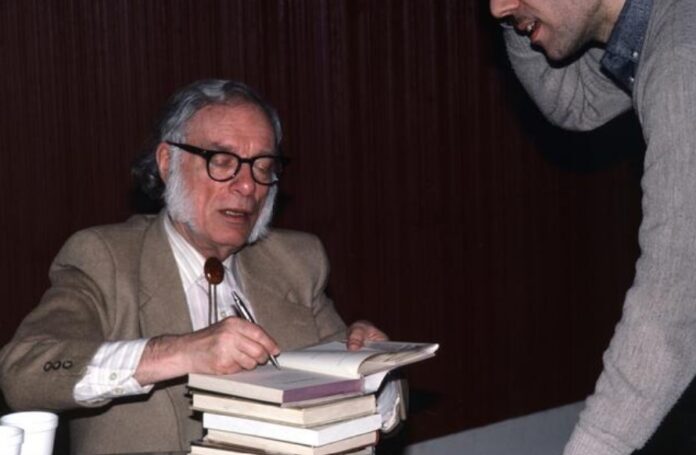On January 2, 1920, Isaac Asimov was born in Petrovichi, a small town in the Soviet Union. A towering figure in science fiction and popular science writing, Asimov is best remembered for his Foundation series, Robot stories, and the groundbreaking “Three Laws of Robotics.” His contributions went beyond fiction, as he was also a prolific science communicator, bridging the gap between complex scientific ideas and the general public.
Asimov’s family emigrated to the United States when he was just three years old, settling in Brooklyn, New York. It was there that young Isaac fell in love with books, particularly pulp science fiction magazines, which shaped his intellectual world. Though initially bound for a career in biochemistry—he earned a Ph.D. from Columbia University—writing soon became his true passion.
Achievements and Innovations
Asimov authored or edited more than 500 books across nearly every major branch of knowledge, from science fiction and history to humor and religion. His most celebrated works, the Foundation series and the Robot stories, offered not only gripping tales of futuristic empires and artificial intelligence but also philosophical meditations on power, ethics, and humanity’s destiny.
The Foundation series earned Asimov the prestigious Hugo Award for “Best All-Time Series” in 1966, while his Robot stories—particularly the creation of the Three Laws—helped shape modern discussions of artificial intelligence. In non-fiction, his lucid style and boundless curiosity shone through works like The Intelligent Man’s Guide to Science and Asimov’s New Guide to Science.
Legacy and Broader Impact
Asimov’s vision extended far beyond his literary worlds. He believed in the power of knowledge and rationality to solve humanity’s problems, a philosophy that underscored his work and public persona. His optimism about human potential made him a symbol of hope during the Cold War, a time when technology was both feared and revered.
In 1992, the world lost Isaac Asimov to heart and kidney failure, complications from an HIV infection contracted during a blood transfusion. Yet, his ideas remain profoundly relevant. From artificial intelligence ethics to the grand ambitions of space exploration, his work continues to inspire scientists, writers, and dreamers alike.
Asimov once said, “Writing is the most fun you can have by yourself.” On January 2, we celebrate a man whose joy in creating worlds and explaining ours has left an indelible mark on humanity’s intellectual and creative journey. His contributions remind us that imagination, combined with rigorous thought, is one of our greatest tools for understanding the universe and shaping a better future.




